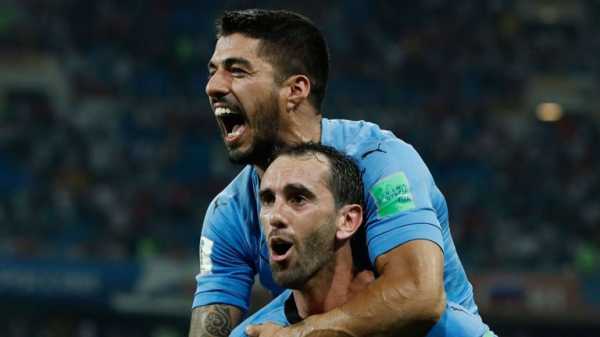
Uruguay should not be able to compete with football’s super powers but for almost a century now this small South American country has continued to defy logic. Adam Bate examines Uruguay’s lengthy love affair with the beautiful game.
Have you heard? Football is coming home. Well, that’s good news for Uruguay. The Estadio Centenario in Montevideo was the venue for the first ever World Cup final and is the only stadium in the world to be designated by FIFA as a historic monument. Uruguay won that tournament in 1930 and now they are back in the quarter-finals again, dreaming of a repeat.
Their success is an ongoing miracle. As 15-time winners of the Copa America with two World Cup triumphs and a couple of Olympic gold medals, this is the most successful nation in the history of football. Extraordinary given that this country also has a population of just three-and-a-half million – a third of the number living in Paris let alone France.
So how exactly can a nation with fewer male inhabitants than Friday’s quarter-final opponents have active registered footballers continue to punch so far above its weight? It is one thing for New Zealand to be the greatest rugby team on earth but quite another to compete in football – a game that so many bigger and richer countries cherish so dearly.
Perhaps the key is that while the British take great pride in their role as the codifiers of this beautiful game and Brazilians regard themselves as its greatest exponents, neither nation is truly defined by the sport. Those countries and others are too influential in the fields of science and art, language, legislature and popular culture for that ever to be possible.
For Uruguay, it is a little different – a fact that has been readily acknowledged by some of its most prominent citizens right from the outset. When the country won the gold medal at the 1924 Olympics in Paris, Atilio Narancio, the then president of the Uruguayan football federation declared: “We are no longer just a tiny spot on the map of the world.”
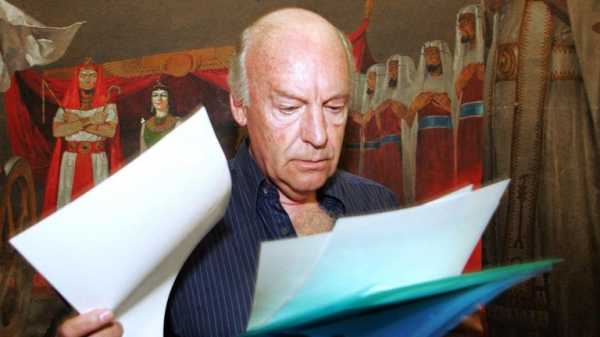
Eduardo Galeano, the celebrated journalist who has been described as global soccer’s pre-eminent man of letters, opted for more evocative language. “The sky-blue shirt was proof of the existence of the nation,” he wrote of those early successes. “Uruguay was not a mistake. Soccer had pulled this tiny country out of the shadows of universal anonymity.”
The second World Cup win came in 1950 when Alcides Ghiggia stunned Brazil in the Maracana. Galeano called it “the most raucous silence in the history of football” – think 7-1 to Germany but with 140,000 more people. The last Copa America came in 2011, more recent than Brazil and Argentina’s last triumphs. Everybody knows about Uruguay now.
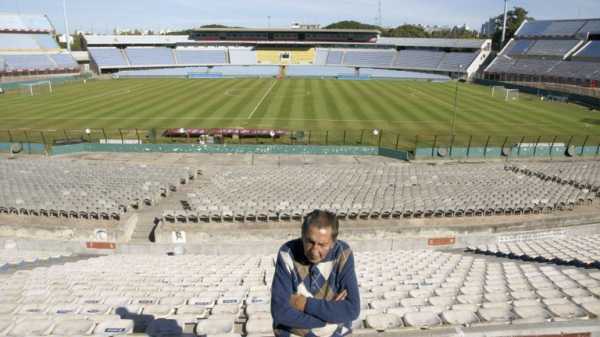
France’s star striker Antoine Griezmann has embraced the culture so enthusiastically that when Uruguay confirmed their place at this World Cup with victory over Bolivia in March, he was there at the airport waiting for his Atletico Madrid team-mates Diego Godin and Jose Gimenez to return. He was even wearing the shirt of the Uruguay national team.
Griezmann has taken to drinking mate – a traditional beverage in South America – and named Godin as the godfather of his young daughter. He has even joked that he now feels half-Uruguayan. It is a pleasing tale but while being Uruguayan might be a state of mind for the Frenchman, his opposite number Luis Suarez points out there is more to it than that.
“Antoine is saying that he is half-Uruguayan but he is French and he does not really know what it is to feel Uruguayan,” explained Suarez in his press conference prior to the game. “He does not know who we are or what we must do in order to be successful in football. He enjoys our customs and he can speak the same language, but we feel differently.”
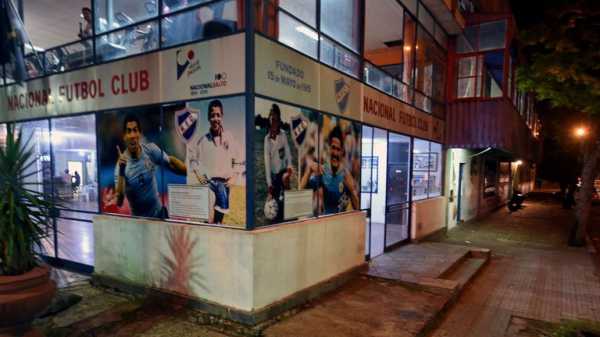
Not many feel it more keenly than Suarez and to understand his psyche is to understand much about the Uruguayan mentality and the reasons for it. If life in France is alive with possibilities, it might not always seem that way in the small town of Salto where, improbably, both Suarez and his strike partner Edinson Cavani began their journeys.
Technically, it is Uruguay’s second city but there are 50 towns in France with a bigger population. 15 of Uruguay’s 16 top-flight teams are based in Montevideo and the 16th is not in Salto. “You’re not a kid from the capital, that’s for sure,” Cavani explained recently. “The kids from Montevideo live in a different world. In Salto, it’s just different.”
Melbourne City forward Bruno Fornaroli is another who emerged from the town and he recalls his bus trips alongside Suarez to go and train for Nacional in the capital. Tellingly, it is not the Barcelona forward’s abilities in front of goal that have stayed with him but his “very strong mentality” and the astonishing appetite that he has shown to make it to the top.

That reflects in Suarez’s style of play and is just as apparent in Cavani’s approach, a player who renowned South American football correspondent Tim Vickery has taken to calling ‘a box-to-box striker’ due to his work rate. The pair are used to having to put in more than the next guy. As Cavani puts it: “You will carry these feelings with you for your entire life.”
When two men with almost 100 international goals between them are so committed to the cause, what choice do the rest have? In Godin and Gimenez, Uruguay also boast perhaps the best centre-back partnership in football today. It should be no surprise that they are the only team at this World Cup yet to concede a single goal in their first four matches.
Defensive resilience is a proud tradition and in the increasingly frail figure of Oscar Tabarez, the coach, there exists the living embodiment of those links to the past. He was at the helm for the 1990 World Cup and also took charge of the run to the semi-finals in South Africa eight years ago. Nobody has overseen more international matches than him, anywhere, ever.
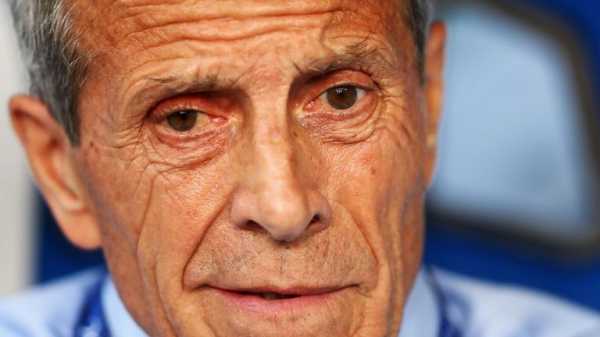
Tabarez is 71 but it is not possible to stay in the job that long without recognising the need for renewal. The game against France is a rematch of the 2013 U20 World Cup final and while Paul Pogba captained his country to victory that day via a penalty shootout in Istanbul, five of the current Uruguay squad played in that game. The talent keeps coming.
As well as being world class in both boxes, there is now energy and quality in midfield with Rodrigo Bentancur and Lucas Torreira, in particular, two special talents. And despite the reputation for a win-at-all-costs mentality, this Uruguay team also has the best disciplinary record at the World Cup. It is a team that Galeano would take pride in.
Sadly, the great man died in April 2015. Just months later, Ghiggia, the scorer of the winner in 1950 also passed away. The last man from Uruguay’s last World Cup-winning team. The old icons are gone, but the traditions live on – as do the hopes and dreams of a nation. “History never really says goodbye,” Galeano once wrote. “History says, ‘See you later’.”
Comment below to get involved in the debate, but please adhere to our House Rules. If you wish to report any comment, simply click on the down arrow next to the offending comment and click ‘Report’.
Also See:
Sourse: skysports.com






